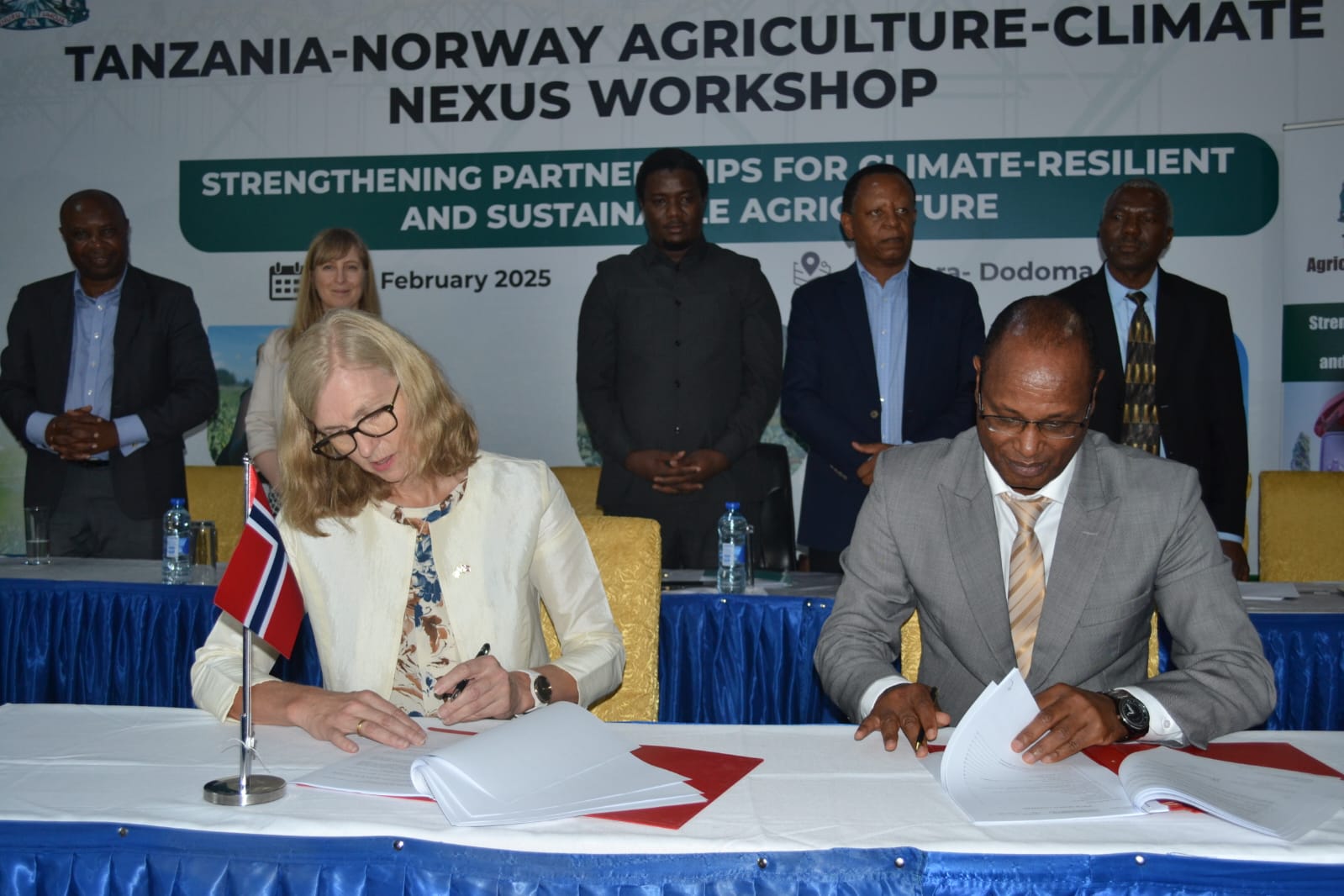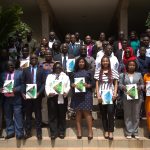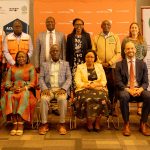AGRA, in collaboration with the Royal Norwegian Embassy, Tanzania’s Ministry of Agriculture, and the Agriculture Transformation Office (ATO), has reaffirmed its commitment to tackling climate change. At the Agriculture-Climate Nexus Workshop, discussions centered on building stronger partnerships to promote climate-resilient and sustainable agriculture.
A key highlight of the workshop was AGRA’s new partnership agreement with Norway, aimed at accelerating Tanzania’s 2025 Agricultural Transformation Master Plan (AMP). This three-year initiative seeks to enhance smallholder agriculture, drive economic growth, improve food security, and reduce poverty. The program will focus on rolling out the Agricultural Growth Corridors of Tanzania (AGCOT), drawing lessons from the SAGCOT model.
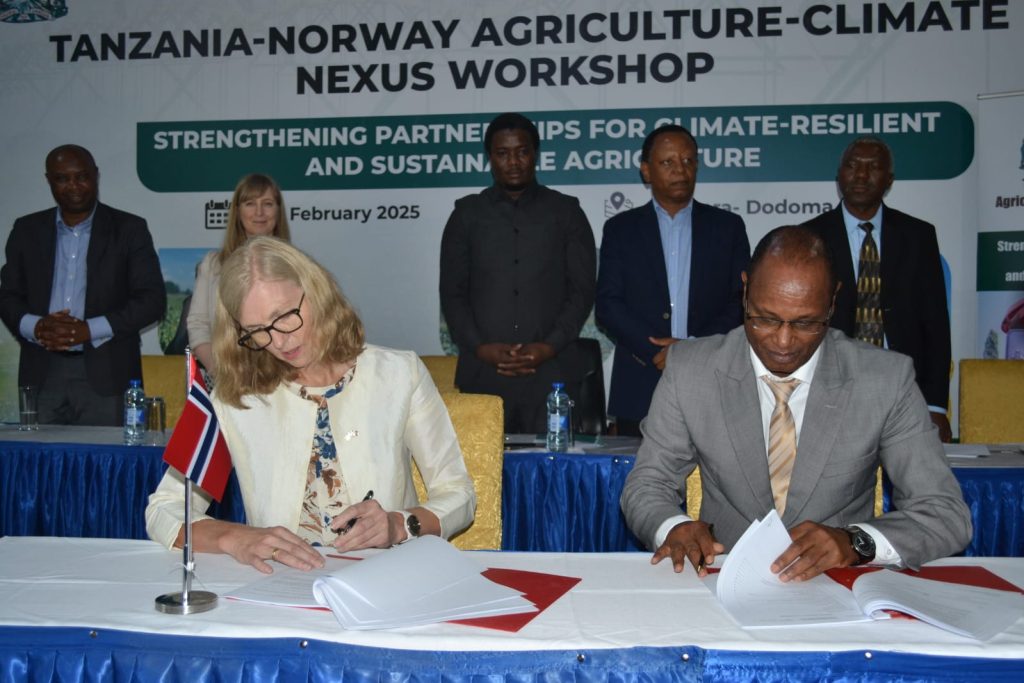
According to the AMP, several key challenges could hinder the AGCOT program, including regulatory barriers, limited institutional capacity, lack of investment facilitation, and environmental risks. To address these, the new partnership will focus on three main outcomes: improving coordination between public and private stakeholders, creating a more enabling regulatory environment, and increasing investments in select agricultural corridors.
Speaking at the signing ceremony, Deputy Minister of Agriculture Hon. David Silinde (MP) reaffirmed Tanzania’s commitment to expanding the SAGCOT model nationwide. Norwegian Ambassador to Tanzania, Her Excellency Tone Tinnes, highlighted that the initiative aligns with broader agreements signed in 2023 between Norway and Tanzania. She also noted Norway’s long-standing support for Tanzania’s agricultural sector, recognizing its crucial role in food security and job creation.
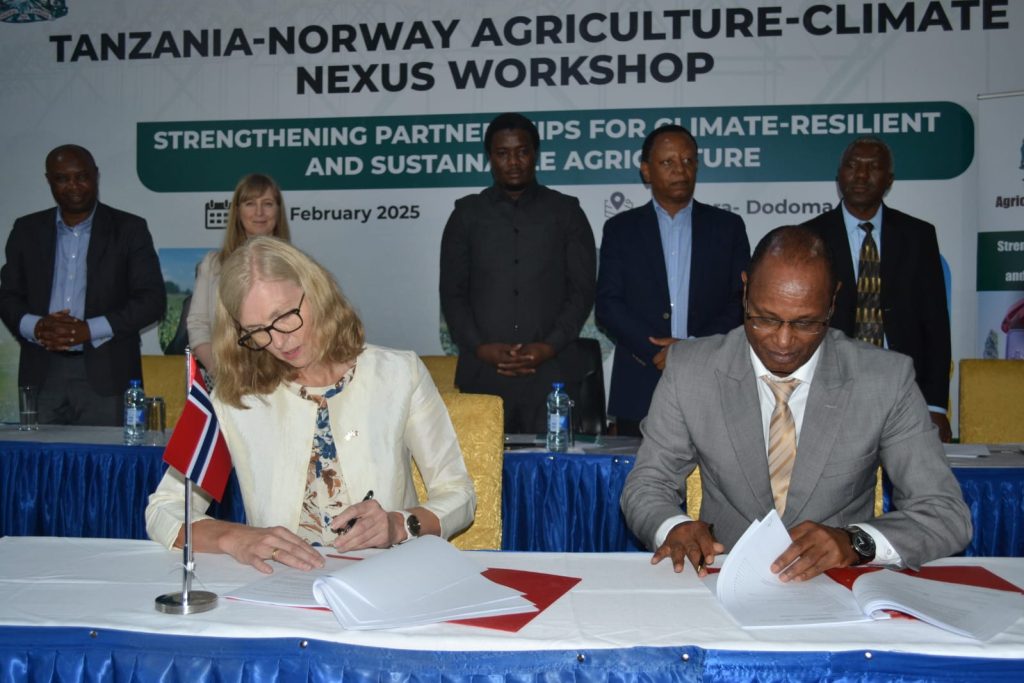
AGRA’s Country Director for Tanzania, Mr. Vianey Rweyendela, emphasized AGRA’s role in providing technical and implementation support to key stakeholders. AGRA will help design and scale the AGCOT flagship program, build institutional capacity, and mobilize resources. The organization will also leverage its ongoing investments to accelerate AGCOT’s expansion.
The workshop brought together stakeholders from various sectors, including environment, trade, and conservation. It served as a launchpad for new initiatives, including a Norway-funded strategy for SAGCOT and a new agreement between Norway and the International Union for Conservation of Nature (IUCN).
Overall, the workshop aligns with the goals of the Comprehensive Africa Agriculture Development Programme (CAADP), focusing on natural resource management, rural infrastructure, market access, and disaster risk management. By uniting key players, this event marks a significant step toward transforming Tanzania’s agricultural sector into a resilient and thriving industry that benefits all Tanzanians.
While agriculture contributes nearly a third of Tanzania’s GDP and employs over two-thirds of its population, the sector still has untapped potential. With vast arable land, favorable rainfall, and access to growing regional markets, Tanzania has opportunities to modernize smallholder farming.
Tanzania’s approach to agricultural transformation must integrate food security, economic growth, and climate resilience. The renewed partnership between AGRA and Norway sets a strong foundation for achieving these goals.

